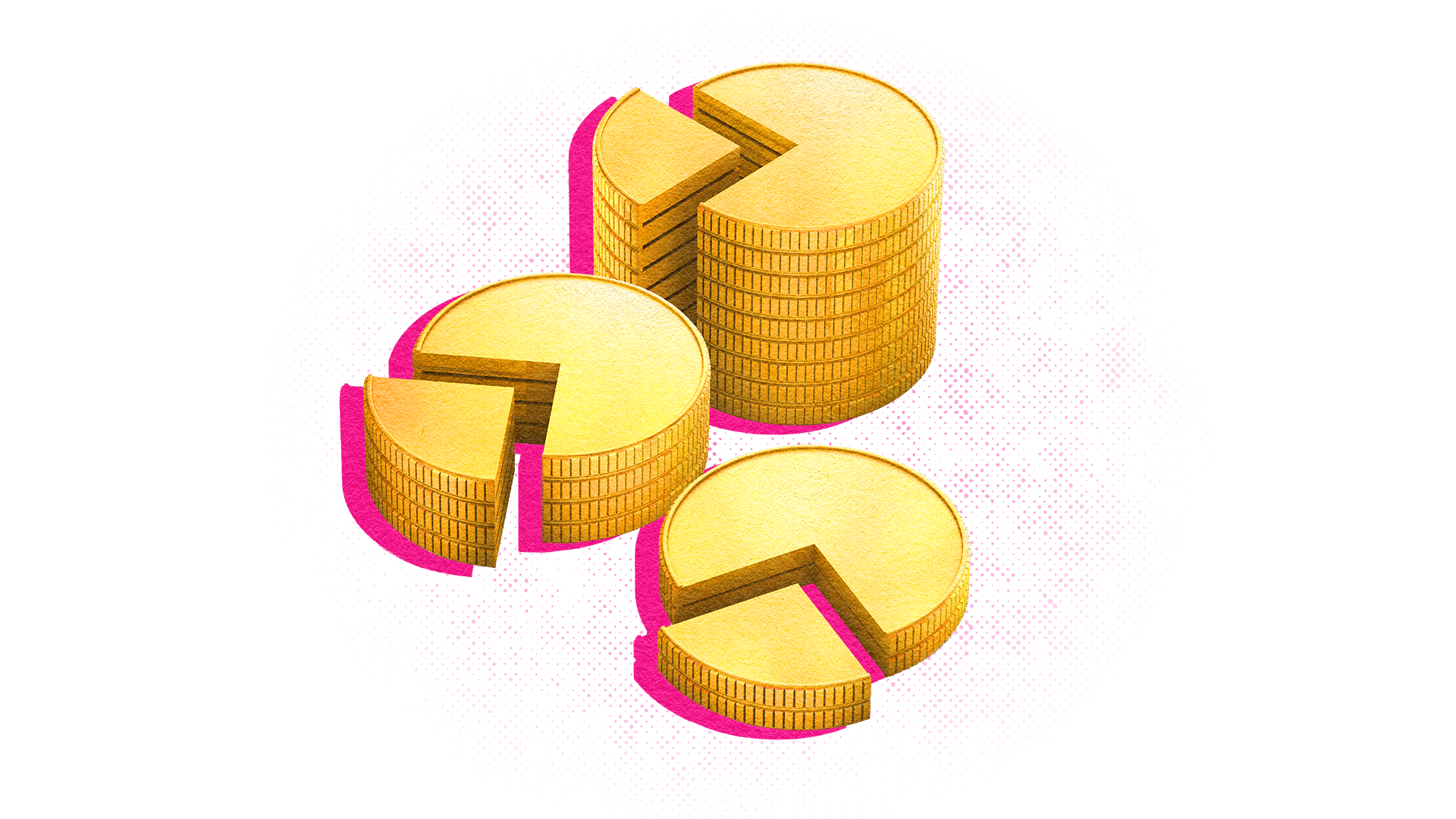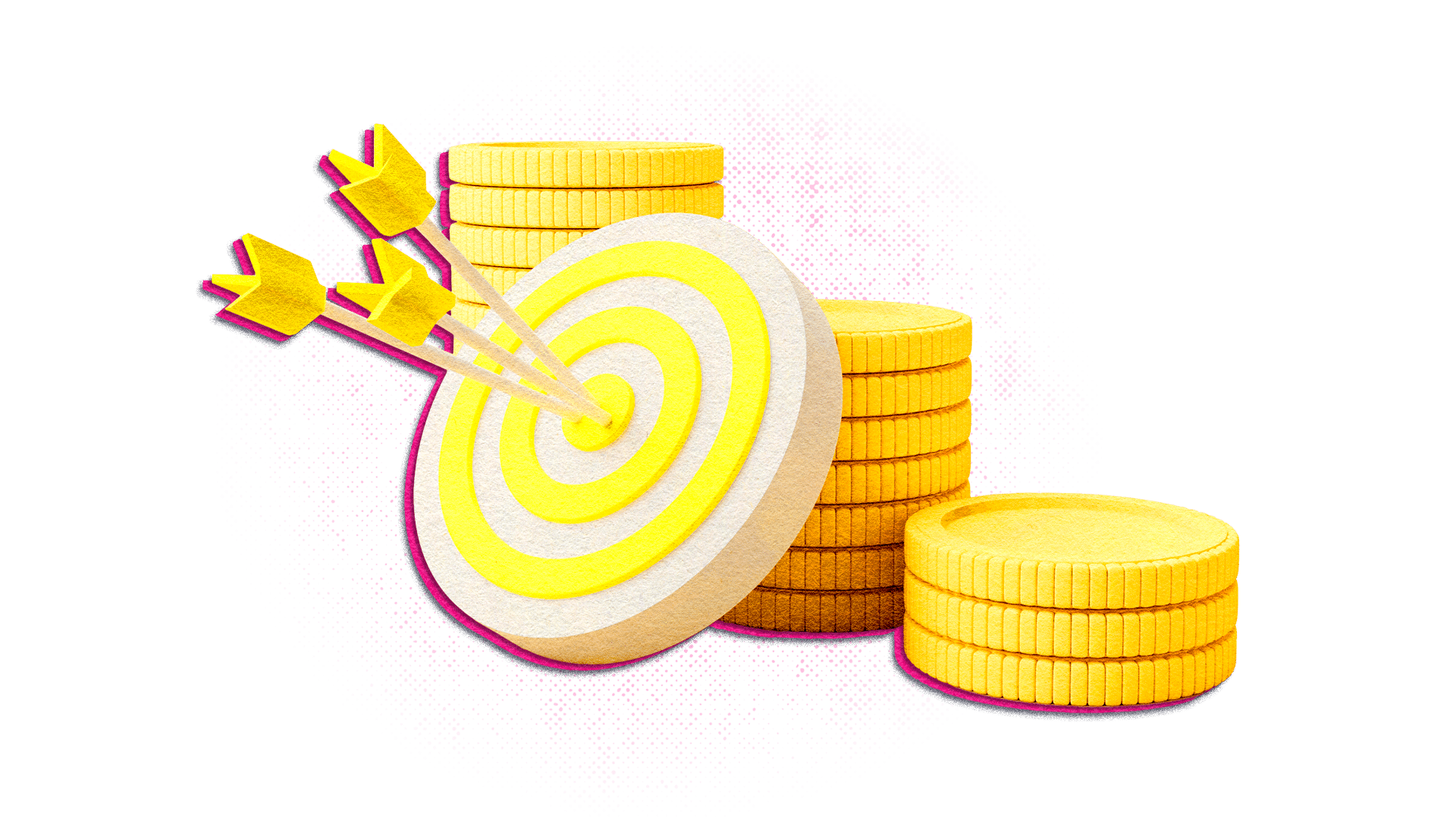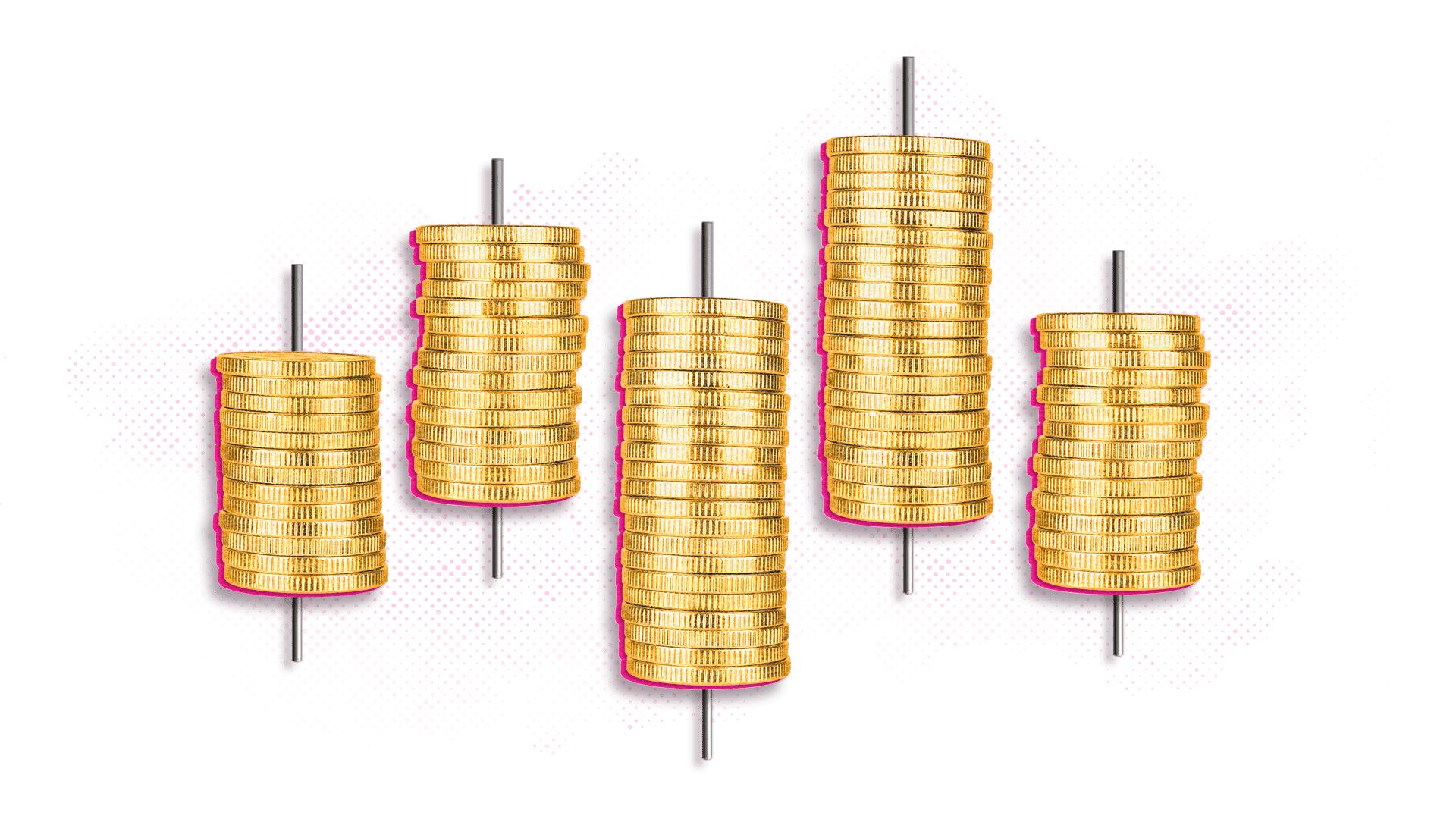Investing in a mutual fund is a little like buying a fruit salad. You get instant exposure to a range of different fruits, each with the potential to satisfy your appetite. Even if the strawberries aren’t as fresh as you’d hoped, the watermelon and honeydew will be juicy enough to leave you satisfied.
It’s the same with a mutual fund. They are essentially a basket of securities, which can include stocks and bonds, each with the potential to grow your savings. This diverse range of assets can help lower the risk of one investment going sour, because even if some of the items don’t perform as you’d like, others may exceed your expectations.
Getting easy access to an instantly diversified portfolio is why mutual funds have become one of the most popular investments on the planet. They’re extremely versatile — they can be used for short- and long-term savings — and with so many funds on the market, you can get access to a single fund that covers the whole world, niche tech companies and everything in between.
Here’s what you need to know about mutual funds.
What is a mutual fund, in simple terms?
A mutual fund is a type of investment that owns a collection of securities, usually stocks and bonds, but can also hold real estate investment trusts (REITs), cryptocurrency, derivatives — such as options or futures — and more. Investors buy units in a fund (similar to buying shares in a company). Those dollars get pooled together with the cash other investors put in, giving the fund manager — the person or team who selects the asset mix — money to populate the portfolio with securities.
Types of mutual funds
Investors have a lot of mutual funds to choose from, with more than 140 fund management companies in Canada selling more than 4,000 funds. Here are some of the types of mutual funds available.
- Money market funds
Money market funds are typically low-risk, short-term investments that consist mainly of Government of Canada treasury bills and other securities issued by the corporate sector. While you may not see rapid growth of your investment in these funds, you will get monthly distributions at minimal risk, which is ideal when saving for short-term financial goals.
- Fixed income funds
There is a legion of bond funds, all of which hold different kinds of fixed income instruments. They can hold bonds across the spectrum — government, corporate, high yield, foreign, short- and long-term duration, and everything in between. Some may hold only one kind of bond, while others may hold them all. Generally, fixed income funds provide a steady income stream, and they may help to balance out the riskier equity side of a portfolio.
- Equity funds
These funds hold stocks of public companies and are often divided into subcategories based on various factors. These can include the size and sector of the companies, the geographic location of the businesses, (a U.S. equity fund will only hold U.S. companies) and whether they’re focused on high-flying growth stocks or more stable and well-established operations.
- Balanced funds and portfolio solutions
The balanced fund is one of the most popular funds on the market. It helps minimize market risk by holding a mix of equities, fixed income and money market investments. A typical balanced fund holds 60% of its assets in equities and 40% in bonds, but there are other asset mixes (like 50/50 or 70/30) to choose from.
How do mutual funds work?
Mutual funds aren’t complicated. You buy units and the fund manager takes that cash from you and others to buy securities. If the assets in the fund rise in value, so does the price of your units. Where it can get a bit tricky is around fees and taxes, which we get into later.
How does a mutual fund make you money?
There are several ways to make money from mutual funds. Here are the two most common.
- Units of the fund increase in value
Like any investment, the fund’s value — determined by what’s called the net asset value (NAV) — can rise or fall in price. Your fund company calculates the NAV per unit by dividing the total value of the portfolio by the total number of shares outstanding. Usually, when the securities in the fund go up, so too does the NAV.
- Income earned from dividends, interest and gains
Many funds also pay out a distribution — often quarterly or monthly — to unitholders. Those dollars tend to come from dividends paid by the companies the fund holds, income earned from bonds and gains made from the sale of a stock inside the fund. Investors often reinvest these distributions back into the fund in exchange for more units, but some people, especially retirees, may rely on the cash to cover their expenses.
When assessing a mutual fund’s performance, always look at its total return. This number captures an investment’s actual rate of return by including capital gains, interest, dividends and any distributions over a set period of time.
Mutual fund costs
You can’t talk about mutual funds without talking about fees. Companies charge a management fee which covers the cost of running and maintaining the fund, including paying the portfolio manager’s salary. The fee is typically expressed as a management expense ratio or MER.
If a fund’s expense ratio is 2%, you’ll pay $40 every year for each $2,000 you invest. Fees aren’t necessarily a bad thing — your fund manager isn’t going to do their job for free — but you may wish to compare costs before you invest.
Mutual funds: pros and cons
Advantages of mutual funds
- They’re accessible
It’s easy to invest in mutual funds because they’re relatively easy to understand and usually only require a small initial investment to get started.
- They’re professionally managed
Busy investors don’t have to pick investments on their own. Instead, they may leave it to the pros who are studying the ins and outs of hundreds, if not thousands, of investments all the time and choosing the best ones to be in their portfolio.
- They’re diverse
Mutual funds, by their nature, offer exposure to a range of securities with the objective of minimizing overall risk. When one asset inside a fund struggles, the idea is other holdings may do well and balance out the losses.
Disadvantages of mutual funds
- Fees can add up
Fees can quickly eat away at potential returns, so you might want to keep a close eye on a fund’s MER and make sure you’re getting value for what you’re paying.
- Daily trading
Mutual funds can only be bought or sold at the end of the day, unlike exchange-traded funds (ETFs), an increasingly popular alternative to mutual funds that can be traded at any point the market is open.
- There are no guarantees
Just because you’re paying for a professional fund manager doesn’t mean you’re guaranteed results. In volatile markets, even well managed funds can struggle to match market benchmarks.
- They aren’t always tax-efficient
Mutual fund distributions can give you some extra cash, and like other investments such as stocks held outside of a registered account (like an Registered Retirement Savings Plan or a Tax-Free Savings Account) you will have to pay taxes on those dollars. How much you pay will depend on your tax bracket and how much of the distribution is made of dividends, capital gains and income.
Is mutual fund investing a good fit for you?
Reflect on your budget, risk tolerance and goals
Your budget is always one of the most important considerations with investing. Fortunately, many mutual funds have no minimum investment thresholds and the ones that do typically fall in the range of $500 to $3,000. Setting a goal for your investment dollars will help you decide which fund might be right for you.
If you’re looking for a short-term vehicle, you could consider a money market fund. If you plan on holding the investment for the long haul, an equity fund could be appropriate. Keep in mind, the closer you are to retirement, the less risky you want your portfolio to generally be.
Consider a strategy: active or passive
If you want a professional manager keeping an eye on your investments, you could consider an active fund — just keep in mind you’ll probably have to pay a higher fee. Each fund employs a different investment strategy, which you can mix and match to build a diversified portfolio of mutual funds to fit your needs. If you’re looking to mirror the market and don’t want to pay for professional help, a passive index fund or ETF, both of which track a benchmark index such as the S&P 500, might be a strategy to consider.
Don’t forget to factor in costs and taxes
Regardless of whether you go with an active or passive fund, the fund you choose will charge you fees. Make sure you’re aware of the number, along with any taxes you might be required to pay, before you invest.
Mutual funds vs. stocks
When you invest in a stock, you are buying a stake in a single company, while a mutual fund can provide exposure to hundreds of companies. Both investments are capable of providing enticing returns. The access to diversification within a single unit can make mutual funds a way to reduce risk.
Mutual Funds vs. ETFs
Both mutual funds and ETFs offer instant diversification by pooling investor dollars to purchase baskets of securities. But, while mutual funds are priced once a day (after markets close), ETFs can be bought on markets throughout the day, just like stocks. Actively-managed mutual funds also generally carry higher fees than ETFs, which tend to be more passive in nature. Click here to get a better understanding of how mutual funds differ from ETFs.
How to invest in mutual funds in Canada
Mutual funds can be purchased by opening an account with an online trading platform. TD Bank offers TD Direct Investing as an option to help you get started with mutual funds in Canada.
![]()
FAQs
Can mutual fund units be sold at any time?
While an order to buy or sell a mutual fund unit can be issued at any time, the price is established at the close of the trading day.
How much money should you keep in mutual funds?
While each investor should review their unique financial goals and investment capabilities independently, you could consider setting a budget for your savings and investing. One example would be the 50/30/20 rule, which suggests that you direct 50% of your after-tax income to your day-to-day needs, 30% to your wants and 20% to your financial goals, such as debt reduction and investments.
Are mutual funds safer than stocks?
Mutual funds are generally regarded as less risky than stocks because they offer instant diversification: If any single security in a fund struggles, its losses may be offset by gains from other assets.
How long should you keep money in a mutual fund?
This depends on a number of factors, including your financial goals, the type of fund you’ve invested in and how it performs. If you’re saving for retirement, you may want to keep your money invested until you need the cash. If a fund badly underperforms or comes under different management, however, you may want to consider other options.
Are mutual funds good for retirement?
Mutual funds can be a good investment option for retirement savings because they offer an easy and lower-risk way to maintain a diversified portfolio.








